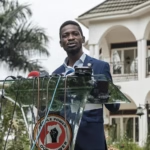Under the warm sun of a Friday morning in Mengo, tradition met promise as President Yoweri Museveni officially launched the construction of Lwattamu House — a grand cultural and administrative centre that will serve as a new home for Buganda’s 52 clan leaders.
The atmosphere was more than ceremonial. It was personal. For many of the clan heads, some elderly and dressed in traditional regalia, this moment had been long in the making — a presidential promise finally taking physical form.
“It’s not just a building,” said one elder, softly. “It’s a symbol — that we are seen, respected, and remembered.”
The six-storey structure will rise on two acres of land near Bulange, land President Museveni himself bought for the project. It will cost Shs 58 billion and take three years to complete, with construction being handled by the Uganda People’s Defence Forces (UPDF) Engineering Brigade
Lwattamu House is designed to be a cultural landmark — complete with a museum, theatre, shops, banking halls, conference rooms, and individual offices for each clan leader. It will also include residential spaces, ensuring that clan leaders can stay connected to the heart of Buganda.
President Museveni addressed the significance of the moment with a tone that blended reverence with political clarity.
“In our African tradition, you cannot do without the Bataka,” he said. “Even where there are no kings — like in Karamoja or Ankole — the clan leaders remain central. They are the foundation.”

His remarks were received with applause and knowing nods. In the crowd sat clan representatives from across Buganda: Nvuma, Ngeye, Ngo, Ffumbe, Ndiga, Njovu, Mbwa, and others — a tapestry of heritage that stretches back centuries
This wasn’t a move without controversy. The meetings that led to the Lwattamu House project happened quietly last year. The clan leaders met with the President twice, introduced by Minister of ICT Joyce Nabbosa Ssebuggwawo. During those meetings, Museveni promised to support their development — not just culturally, but economically.
However, the Buganda Kingdom distanced itself from the initiative, saying it wasn’t officially informed of the discussions. That hasn’t stopped the project — or the momentum behind it.
“I have no regrets,” said Minister Ssebuggwawo at the event. “What has happened today will be remembered for generations. And, Mr President, neither should you regret what you have done.”
Standing to speak on behalf of the clan leaders, Alex Kikule expressed more than thanks — she pledged support.
“We want to move with the government,” she said. “We ask to join you on your campaign across Uganda next year. We ask to be trained in Kyankwanzi. We want to walk this journey with you.”
It was a clear sign that for some, the line between culture and politics is not just blurred — it’s part of a deliberate path.
The commissioning ceremony was attended by several top government officials including the former Katikkiro of Buganda JB Walusimbi, and ministers Judith Nabakooba, Milly Babalanda, and Minsah Kabanda.
But at the heart of it all were the clan leaders — guardians of Buganda’s deep cultural roots — who stood shoulder to shoulder, smiling and hopeful, as the foundation of their new home was laid.
For them, Lwattamu House isn’t just about bricks and mortar. It’s about dignity, legacy, and being part of a future that still values the past



